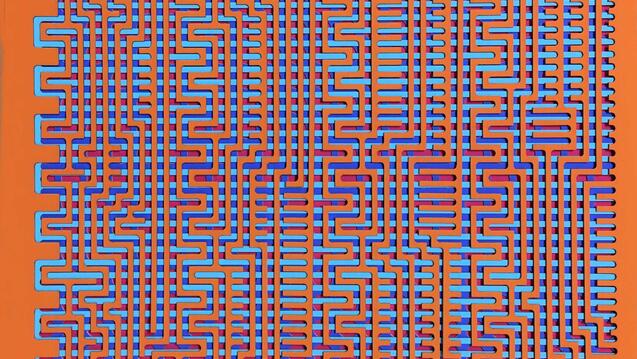This course studies the relationships and perception of space and form through two- and three-dimensional optical experiments using color per Joseph Albers' definition of color theory as a hands-on experimental process of creating relationships through perception.

Fall 2025
Robot Lab, Carnegie Mellon Architecture dFAB
This course is designed to focus on professional and personal development for a career within the discipline of architecture. The goal of the course is to make students more marketable, preparing them to become valuable professionals within a global economy.
This mini-course explores the theoretical foundations of generative AI and its emerging role in architectural design.
This mini-course is structured as a series of hands-on workshops focused on engaging with a range of text- and image-based AI models, including both open-source and proprietary platforms.
This course prepares students for modeling geometry through the scripted development of parametric schemes, primarily for design applications. The goal of the course is to introduce students to basic scripting in a geometrical modeling environment with a focus on form-making algorithms, and to reinforce and extend basic concepts of parametric modeling.
Through transdisciplinary methods and a framework of thinking and practice that this course terms “Unreasonable Architecture,” the course aims to introduce a more expanded knowledge framework of meaning that includes indigenous systems and spatial technologies that sit outside the constraints of modern reason and economic legibility.
This course explores the architectural and urban design histories of American cities, tracing their evolution from colonial settlements to the late 20th century.
This course seeks to further system-based understanding and reflect critically on industry-based development.
This course examines the issues of the destruction and reconstruction of buildings and cities. In doing so, we raise questions about the nature of architecture and cityscapes, cultural loss and cultural recovery, and how buildings and cities have come to represent other issues such as national identity and progress.
This architectural history course surveys the built environment of Mexico and Guatemala during the Mesoamerican and Spanish Colonial eras.
This course focuses on a design practice working with diverse populations by focusing on human behavior in the environment and lenses for conceptualizing problems and interventions.









